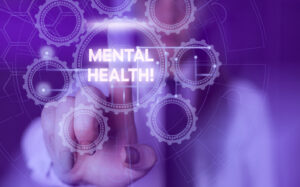Life-changing telepsychiatry services for ADHD
Break free from ADHD with an evidence-based
treatment plan tailored to you.
How we can help you conquer ADHD
Our approach to ADHD care for patients begins with empathy and a deep understanding of how your condition impacts your quality of life. This allows us to come up with a treatment plan that revolves around your unique needs, medical history and the latest data out there. Here’s a breakdown:

60-Minute Psychiatric Assessment
Your journey to mental wellness starts with a 60-minute assessment, where one of our experts will take a deep dive into your specific challenges with anxiety to create a care plan tailored just for you.]

Evidence-Based Treatment
Our psychiatrists stay up to date with the latest research and treatments in mental health. Whether it’s therapy, medication, or a combination of both, we only recommend solutions backed by science to give you the best chance at success.
Success Stories
What Our Patients Are Saying
"When I started to have anxiety issues and my doctor couldn't help, I began searching for somebody who could. In calling around, I couldn't get in with anyone for several weeks. I then called Platinum Psychiatry and spoke with Mel. She was kind and compassionate and went out of her way to help me book an appointment for the very next morning. Platinum Psychiatry was very helpful and I would recommend them."
"My initial visit with Dr. Shorten went very well. I was comfortable with discussing my problems and with his responses. I felt "equal." He seemed understanding of my choices and thoughts, which means a great deal to me. I'm looking forward to my next visit! I've been seeing psychiatrists for nearly ten years, and it is rare for me to look forward to seeing a new one. Decent prices without insurance."
"Very professional, compassionate, and genuinely concerned about you as a patient and not your pocket case. I came to Dr Shorten feeling like a wreck but he listened, listened, and listened again. He has both me and my teenage son on track to feeling more like our usual selves."
"I searched for a Dr. for my boyfriend to meet with for weeks knowing that my boyfriend was reluctant to go. I was most concerned that the experience might not go well and my boyfriend wouldn’t give it another shot. Boy am I glad we went here. Dr. Shorten was AMAZING and not only made us feel comfortable but nailed it across the board with listening and helping my boyfriend to understand what’s going on. Do yourself the favor and schedule. You will not be disappointed."
"A brilliant, patient-focused psychiatric practice. As another reviewer had mentioned, their customer service is impeccable. The doctor himself is VERY skilled in bedside manner, and hearing the patient out. He answers your questions thoroughly, and you feel as though he cares about how well you're doing. He has helped me to achieve better results than any practitioner I'd encountered before him. Truly a Platinum-level practice!"
"I have been a patient for several months. Easy to get refills, is one of the few doctors who actually listened to what my goals were, and what medication I wanted to stay away from. Highly recommend. He is open to both Western and Eastern medicine and is very thoughtful and understanding. Genuinely cares about his patients."
LEARN More About ADHD
Attention-Deficit/Hyperactivity Disorder (ADHD) is a neurodevelopmental condition that affects both children and adults. It is characterized by persistent patterns of inattention, hyperactivity, and impulsivity that interfere with daily life.
While occasional distraction or restlessness is common, ADHD goes beyond this—impacting work, school, and relationships. It is one of the most prevalent mental health conditions, affecting approximately 8.4% of children and 2.5% of adults in the U.S.
If you suspect you or a loved one has ADHD, seeking a professional diagnosis from a psychologist, psychiatrist, or other qualified healthcare provider is the first step.
The good news is that ADHD is manageable. With the right strategies, medications, and behavioral therapies, individuals with ADHD can develop skills to improve focus, organization, and impulse control.
ADHD vs. Occasional Distractibility
Everyone experiences moments of forgetfulness, difficulty concentrating, or restlessness. These occasional lapses are a normal part of life, often influenced by stress, fatigue, or distractions.
However, ADHD symptoms are more persistent and disruptive. Individuals with ADHD may struggle with:
- Maintaining focus in conversations or tasks
- Following through on responsibilities
- Organizing daily activities
- Impulsivity that leads to difficulty waiting or interrupting others
- Hyperactivity that persists beyond childhood
When these patterns significantly impact work, education, or social life, ADHD may be the underlying cause.
Types of ADHD
ADHD is classified into three main types, depending on the primary symptoms a person exhibits:
Predominantly Inattentive Presentation (ADHD-I)
- Difficulty sustaining attention in tasks or conversations
- Frequently losing things or forgetting appointments
- Becoming easily distracted by external stimuli
- Struggling to follow instructions or complete tasks
Predominantly Hyperactive-Impulsive Presentation (ADHD-HI)
- Frequent fidgeting or inability to stay seated
- Excessive talking or interrupting conversations
- Impulsive decision-making
- Difficulty waiting for turns in conversations or activities
Combined Presentation (ADHD-C)
- A mix of both inattentive and hyperactive-impulsive symptoms
Common Symptoms of ADHD
- Difficulty Sustaining Attention
- Frequent Forgetfulness or Losing Items
- Easily Distracted by External Stimuli
- Impulsivity or Acting Without Thinking
- Hyperactivity (Excessive Movement or Fidgeting)
- Difficulty Following Through on Tasks
- Interrupting Others in Conversations
Learn about the conditions we treat:
Ready to find relief from ADHD?

Latest posts about ADHD
How Do Top Psychiatrists Treat Mental Health Conditions?
How do you treat ADHD?
Medication Management
Our primary approach to treating ADHD involves the careful use of medication. We specialize in prescribing stimulant and non-stimulant medications, including methylphenidate (Ritalin, Concerta) and amphetamines (Adderall, Vyvanse), as well as non-stimulant options like atomoxetine (Strattera) and guanfacine (Intuniv). Our experienced psychiatrists tailor medication choices to each patient’s specific symptoms, medical history, and response to treatment, aiming to improve focus, reduce impulsivity, and enhance daily functioning.
Supportive Services
While our focus is on medication management, we recognize the value of additional supportive services in ADHD treatment. We may recommend resources such as cognitive-behavioral therapy (CBT), executive functioning coaching, and social skills training to help individuals develop strategies for managing attention difficulties and impulsive behaviors. Support groups can also provide a space for shared experiences and guidance.
Lifestyle Guidance
Managing ADHD extends beyond medication to include lifestyle adjustments that enhance focus and organization. We provide guidance on incorporating structured routines, time management techniques, and organizational tools to support daily activities. Regular exercise, balanced nutrition, and mindfulness practices can also improve attention and emotional regulation. Additionally, optimizing sleep hygiene is emphasized, as poor sleep can exacerbate ADHD symptoms.
Educational Resources
Understanding ADHD is a crucial step in managing it effectively. We offer educational materials to help individuals and their families learn about the neurological basis of ADHD, symptom management strategies, and coping mechanisms. With greater awareness and knowledge, patients can take a proactive role in their treatment, leading to improved long-term outcomes.
Common medications for ADHD
Medications for ADHD are just one component of a comprehensive treatment plan. In addition to medication, behavioral therapy, lifestyle modifications, and structured routines may play a crucial role in managing symptoms effectively.
The chosen medication will be carefully monitored for its effectiveness and any potential side effects. Your psychiatrist will make adjustments as needed to ensure the best possible outcome, helping to improve focus, impulse control, and overall daily functioning.
Regular and open communication with your psychiatrist is essential throughout this process. It allows for fine-tuning your medication regimen to meet your specific needs, promoting optimal mental performance while minimizing potential risks.
Remember, ADHD treatment is highly individualized, and seeking professional guidance is a significant step toward managing symptoms and improving overall well-being.
Once a diagnosis is made, we collaborate with you to choose the most suitable medication, tailored to your individual requirements. It’s important to remember that medication is just one aspect of a holistic treatment approach. Therapy and lifestyle changes are also vital components of your journey to recovery and improved well-being.
We closely monitor the effectiveness of your medication and any side effects, making adjustments as necessary to ensure optimal results. You’re not alone on this journey; seeking support from our team at Platinum Psychiatry is a positive step toward achieving greater health and happiness.
Stimulant Medications
Stimulants are the most commonly prescribed medications for ADHD. They work by increasing dopamine and norepinephrine levels in the brain, improving attention, impulse control, and executive functioning. Stimulants are typically fast-acting and highly effective for many individuals with ADHD.
These medications come in short-acting, intermediate-acting, and long-acting formulations to accommodate different treatment needs.
Examples of stimulant medications include:
- Methylphenidate-based stimulants (e.g., Ritalin, Concerta, Metadate, Focalin)
- Amphetamine-based stimulants (e.g., Adderall, Vyvanse, Dexedrine, Mydayis)
While stimulants are generally well-tolerated, some individuals may experience side effects such as appetite suppression, difficulty sleeping, or increased heart rate. Regular monitoring is essential to ensure the right dosage and effectiveness.
Non-Stimulant Medications
For individuals who do not respond well to stimulants or prefer an alternative treatment, non-stimulant medications may be an effective option. These medications work differently from stimulants and are often prescribed for individuals who experience stimulant-related side effects or have specific medical conditions preventing stimulant use.
Examples of non-stimulant medications include:
- Atomoxetine (Strattera) – A selective norepinephrine reuptake inhibitor (NRI) that helps improve attention and impulse control over time.
- Guanfacine (Intuniv) – A non-stimulant that affects the prefrontal cortex, helping with emotional regulation and impulse control.
- Clonidine (Kapvay) – Often used to manage hyperactivity and impulsivity, particularly in children.
Non-stimulants generally take longer to become fully effective but may provide a more stable, long-lasting approach to ADHD management.
Alternative Medications & Off-Label Options
In some cases, other medications may be prescribed off-label to help manage ADHD symptoms, particularly if a person has co-existing conditions such as anxiety or depression.
These may include:
- Bupropion (Wellbutrin) – An antidepressant that affects dopamine and norepinephrine levels, sometimes used for ADHD in adults.
- Tricyclic Antidepressants (TCAs) – Occasionally prescribed when stimulants or standard non-stimulants are not well tolerated.
Finding the right medication or combination of treatments may take time, but with proper medical guidance, ADHD symptoms can be effectively managed. If you or a loved one are exploring treatment options, consulting a specialist is the best first step toward creating a personalized ADHD management plan.
NOT SURE WHICH TREATMENT IS RIGHT FOR YOU?
Schedule a consultation today to talk with our providers about what’s right for you.
741-741
If you’re in emotional distress, text HOME to connect with a counselor.
988
Call or text the 988 Suicide & Crisis Lifeline for 24/7 emotional support.
911
If you’re having a medical or mental health emergency, call 911 or visit your local ER.


